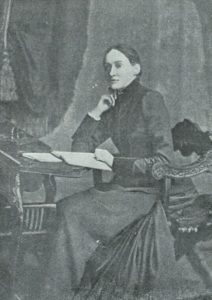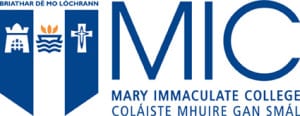Plenary Speakers

Professor James H. Murphy (Boston College)
Professor Margaret Kelleher (UCD)
Professor Gerardine Meaney (UCD)
Professor Heidi Hansson (Umeå University)
See our podcasts from the event here.
Professor James H. Murphy, recently appointed ‘Interim Director of Irish Programs at Boston College’, is a leading scholar of nineteenth-century Ireland. Author or editor of fourteen books, he writes about the long century (1791-1922), though his work focuses on the Victorian period (1837-1901). He is a multidisciplinary scholar and has published widely on issues of gender and sexuality, education and religion and the history of the book. His principal areas of research, however, are the political history and the history of fiction of the century. Publications include his trilogy of books on the history of fiction involving an analysis of large numbers of texts, establishing a methodology in the first, Catholic Fiction and Social Reality in Ireland, 1873-1922 (1997), widening the base of investigation in the second, Ireland: A Social, Cultural and Literary History, 1791-1891 (2003), and tackling a broad area in considerable depth in the third, Irish Novelists and the Victorian Age (Oxford, 2011). He edited the Oxford History of the Irish Book: volume 4: the Irish Book in English, 1800-91 also published in 2011.
Professor Margaret Kelleher was awarded the Chair of Anglo-Irish Literature and Drama, University College Dublin, in 2012. For the previous five years, she was founding director of An Foras Feasa: the Institute for Research in Irish Historical and Cultural Traditions, at NUI Maynooth. She is also Chair of the Board of the Irish Film Institute. Her books include The Feminization of Famine (published by Duke UP and Cork UP, 1997) and the landmark publication The Cambridge History of Irish Literature (2006), co-edited with Philip O’Leary. She was a contributing editor to Field Day Anthology Volumes 4 and 5, and editor of the special issue on the Irish Literary Revival for Irish University Review (2003). Her primary research interests include nineteenth-century literature, famine literature, women’s writings, cultural history, and the historical relationship between literature in English and Irish.
Professor Gerardine Meaney is Professor of Cultural Theory and Director of the UCD Humanities Institute. Her current research interests are in gender, ethnic and national identities in literature and culture and the application of new digital methodologies to humanities research. She is the author of Reading the Irish Woman: Cultural Encounter and Exchange, 1714-1960, with Bernadette Whelan and Mary O’Dowd (Liverpool: Liverpool University Press, 2013); Gender, Ireland and Cultural Change (New York: Routledge, 2010) intro online; Nora, Ireland into Film Series (Cork: Cork University Press and the Irish Film Institute, 2004); (Un)like Subjects: Women, Theory, Fiction (London and New York: Routledge, 1993; reissued Routledge Library Editions, 2012) and 26 articles and book chapters on gender and culture, from Joyce to The Wire. She was one of the major co-editors of the Field Day Anthology of Irish Writing: Women’s Writing and Traditions, volumes 4 and 5 (Cork: Cork University Press, 2002). Her current major research project is ‘Nation, Genre and Gender: A Comparative Social Network Analysis of Irish and English Fiction, 1800-1922, funded by the IRC.
Professor Heidi Hansson, Professor of English and newly appointed Vice-Rector for Internationalisation at Umeå University, Sweden. Among other things, her research has concerned postmodern romance, Irish women’s literature and Irish book history. She has published extensively on Emily Lawless and edited and co-edited several essay collections on Irish women’s writing including most recently with James H. Murphy Fictions of the Irish Land War (2014). Between 2002 and 2009 she led the interdisciplinary research programme Foreign North: Outside Perspectives on the Nordic North. Currently, she is developing a research project about the forms of fiction in nineteenth-century intellectual periodicals. Another strand in her research can be located on the border of language and literature, for instance studies of gendered metaphors and discourse analysis in a wider sense. She is interested in the relations between text and landscape, and have used eco-critical perspectives to understand phenomena in both fiction and non-fiction.



